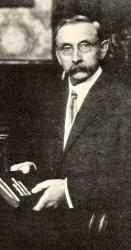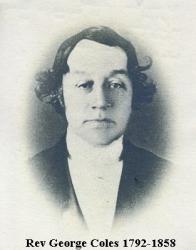1680 - 1732 Person Name: Browne Author of "Hail, sovereign love, that first began" in The New Congregational Hymn and Tune Book, for Public, Social and Private Worship Simon Browne was born at Shepton Mallet, Somersetshire, about 1680. He began to preach as an "Independent" before he was twenty years of age, and was soon after settled at Portsmouth. In 1716, he became pastor in London. In 1723, he met with some misfortunes, which preyed upon his mind, and produced that singular case of monomania, recorded in the text-books of Mental Philosophy; he thought that God had "annihilated in him the thinking substance, and utterly divested him of consciousness." "Notwithstanding," says Toplady, "instead of having no soul, he wrote, reasoned, and prayed as if he had two." He died in 1732. His publications number twenty-three, of which some are still in repute.
--Annotations of the Hymnal, Charles Hutchins, M.A., 1872.
==================
Browne, Simon. A contemporary of Dr. Watts, born at Shepton Mallet, Somersetshire, cir. 1680, and died in 1732. After studying for the Independent Ministry under the Rev. John Moore, of Bridgewater, he became pastor of an Independent charge in Portsmouth, and then, in 1716, of the Independent-Chapel in Old Jewry, London. His lateryears were clouded by a peculiar malady, under the influence of which "he imagined that God had in a gradual manner annihilated in him the thinking substance, and utterly divested him of consciousness." It is supposed that the death of a highwayman at his hands during a violent struggle, followed by that of his wife and son a short time after, had much to do in producing this sad result. Whilst thus contending that he had no power to think, he produced a work in defence of Christianity, another in defence of the Trinity, a third as an Exposition of the 1st Epistle to the Corinthians, and a fourth in the form of a Dictionary. His publications number over 20. Of these works, he is known to hymnology through his:—
Hymns and Spiritual Songs, in Three Books, designed as a Supplement to Dr. Watts, &c, 1720, 2nd edition 1741, 3rd edition 1760. It contains 166 hymns, 7 doxologies, and a Preface of some historical interest.
In the old collections Simon Browne's hymns (all of which are from the above collection) held a prominent position, but in modern hymnals they are fast passing out of use. The best known and most widely used are "Come, Holy [gracious] Spirit, Heavenly Dove," "O God, on Thee we all depend," and "Lord, at Thy feet we sinners lie." In addition the following are also in common use:—
1. Eternal God, Almighty Cause. Unity of God.
2. Eternal God, of beings First. God all in all .
3. Frequent the day of God returns. Sunday.
4. Great First of beings, Mighty Lord. Creation.
5. Great God, my joyful thanks to Thee. Thanksgiving.
6. Great God, Thy peerless excellence. Imitation of God.
7. Great Lord of earth and seas and skies. Providence.
8. Great Ruler of the earth and sky. Providence.
9. Hail, Holy Spirit, bright, immortal, Dove. Whitsuntide.
10. Hail, happy day, the [thou] day of holy rest. Sunday.
11. I cannot shun the stroke of death. Death.
12. Lord, Thou art good; all nature shows. Divine Goodness.
13. Lord, what a feeble frame is ours. Frailty of Life.
14. O God, on Thee we all depend. Confidence in God.
-- John Julian, Dictionary of Hymnology (1907)
Simon Browne



